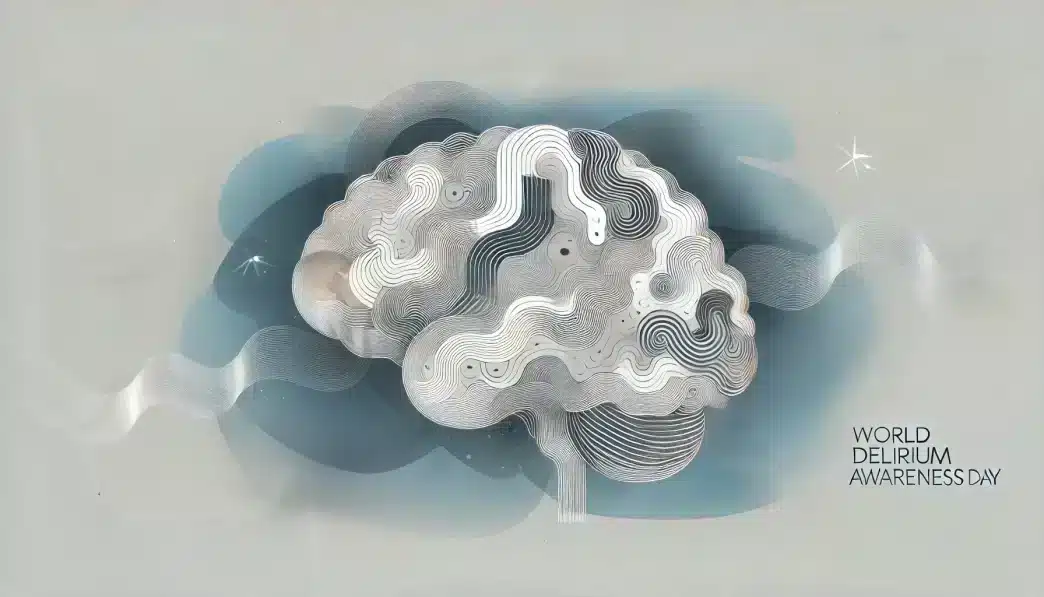What is World Delirium Awareness Day?
World Delirium Awareness Day (WDAD) is observed annually on the second Wednesday of March to raise awareness about delirium, a serious and often under-recognized condition characterized by acute confusion and changes in consciousness. The day aims to educate healthcare professionals, patients, and the public about the signs, symptoms, and prevention strategies related to delirium.
History and Origin
World Delirium Awareness Day was founded by the International Federation of Delirium Societies (iDelirium) to highlight the importance of early recognition and intervention in delirium cases. It serves as a platform to increase awareness about this medical condition, which is often confused with other cognitive disorders. The goal is to educate and inform people about how to prevent, detect, and manage delirium effectively.
Since its inception, World Delirium Awareness Day has grown in recognition and participation, with healthcare providers and organizations using the day to improve patient care and support.
Who Observes World Delirium Awareness Day?
- Healthcare Professionals: Participate by hosting seminars, workshops, and awareness campaigns to educate staff and patients about delirium.
- Educational Institutions: Medical schools and universities may incorporate delirium education into their curricula or hold special events.
- Community Organizations: Conduct outreach activities to inform the public about delirium and its effects.
- Patients and Families: Share their experiences to raise awareness about the challenges and solutions in delirium care.
- Researchers: Use the day to highlight ongoing studies, research findings, and the need for more attention to delirium.
Themes and Slogans
Each year, World Delirium Awareness Day adopts a unique theme to focus on different aspects of delirium. Past themes have included “Delirium is Everybody’s Business” and “Stop Delirium Before it Starts.” These themes aim to raise global awareness, encourage early detection, and advocate for better prevention strategies in healthcare settings.
Colors, Symbols, and Patterns
Colors
- Blue: Symbolizes clarity and the importance of clear communication in healthcare settings.
- White: Represents the simplicity and straightforwardness needed in recognizing and treating delirium.
- Green: Reflects the idea of health and renewal, promoting cognitive well-being.
Symbols
- Brain Icon: Represents the focus on cognitive function, which is directly affected by delirium.
- Clock: Reflects the time-sensitive nature of delirium and the importance of early intervention.
- Open Hands: Symbolizes care and compassion, which are essential in the treatment of delirium.
Patterns
- Wavy Lines: Represent the fluctuating nature of delirium symptoms.
- Circular Motifs: Symbolize the cyclical patterns of attention and consciousness in those affected by delirium.
- Puzzle Pieces: Highlight the complexity of delirium and the need for a multidisciplinary approach to care.
How to Celebrate World Delirium Awareness Day
- Attend or Organize Educational Events: Participate in or host webinars, workshops, and seminars focused on delirium prevention and management.
- Raise Awareness on Social Media: Share facts, personal stories, and resources using hashtags such as #WDAD2025 to spread the message.
- Support Research Efforts: Contribute to or promote delirium research to advance treatment and understanding.
- Distribute Informational Materials: Help educate others by providing pamphlets, articles, or other resources to raise awareness about delirium.
- Advocate for Better Care: Encourage healthcare institutions to adopt delirium screening and prevention protocols.
Most Used Hashtags
- #WDAD202*
- #DeliriumAwareness
- #StopDelirium
- #DeliriumPrevention
- #CognitiveHealth
Why is World Delirium Awareness Day Important?
Delirium is a significant health concern, particularly in hospitalized patients, yet it is often underdiagnosed and mismanaged. World Delirium Awareness Day highlights the importance of recognizing delirium early and implementing effective prevention strategies.
By raising awareness, this day helps to promote early detection, better treatment, and the reduction of delirium-related complications. It also encourages healthcare providers, patients, and families to work together in improving delirium care.
Features
Contact Info
Second Wednesday of March: Delirium Awareness Day
Why do you keep falling for the same type?
Read the article Lovemaps: the hidden blueprint of our love.

